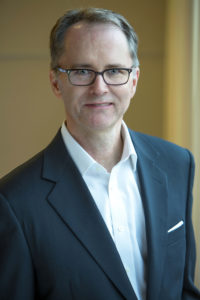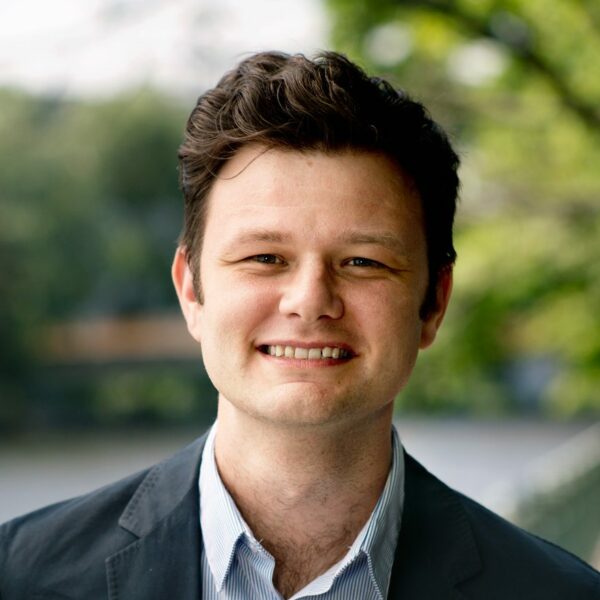A future scenario workshop at our Global Perspectives 2018 conference explored what an international civil society organisation (ICSO) in 2030 successfully ‘Engaging a #New Generation’ would look like. The group predicted a very different global environment of megatrends with great impact and influence on young people. Although only 12 years’ away, there was systemic and rapid change in social and political organisation, technology and data-driven inequality, precarious work/economic situations, and intense climate change, antibiotic resistance and genetically modified food systems.
In this context, the successful CSO of 2030 would have characteristics fundamentally different from the mindsets, skills, structures and ways of working today. Radical and cause-driven, it would be focused on campaigns, advocacy/policy and amplifying what others are doing, with devolved peer-to-peer accountability and consensus decision-making communities both internally and with supporters.
One clear idea was intergenerational ICSOs working on major complex multi-generational issues. We imagined an organisation where all staff – regardless of age and number of years of professional experience – know how to catalyse change, engage the public, and mentor others. This includes multi-directional mentoring across a four- or five-generation workforce, in an organisation where everyone receives leadership training. With CSOs’ professional and technical staff expertise also seen as available through a `draw down´ service to partners, this would also increase in importance.
Undoubtedly, the ICSO of the future will need to expertly balance experience and youth for powerful leadership and ‘manage the intergenerational mix’. There is some general analysis out there but not much detailed exploration for our sector in particular. How much are organisations thinking about this and preparing internal scenarios, tools and processes to make this an easy and effective transition? We may explore this further with the Global Heads of Division in 2019, which will include HR Directors for the first time. Please get in touch if you are already working on this.
A number of ICSOs in the foresight community Scanning the Horizon are experimenting with or interested in engaging young audiences in developing future scenarios. The purpose of which is to inform their current cycles of organisational strategic planning. In a recent webinar organised by the Centre, Amnesty International shared insights from their first ever youth futures workshop within the organisation’s 2018 Global Youth Summit, with 100 young volunteers and activists. An initial round of internal thinking narrowed down the strategic topics to explore in the scenarios, including technology and human rights, economic inequality and cultural power. In groups, the young people then answered three overall questions:
- why they chose that particular theme,
- how the theme affects young people, and
- what Amnesty International should do differently to address the human rights issues in that area.
The participants then created the vision of the world they wanted to see in 2030, completing a blank newspaper front page as the framework to define the future headlines they could help shape. The practical exercise enabled them to identify influencing strategies for different actors under each theme, make connections between topics, and gave them the confidence to replicate the exercise in their own peer networks. Amnesty International now plans to repeat this targeted process with more young people in regional spaces.
As UNICEF’s ‘Adolescents shaping their future: a foresight toolkit’ notes, involving young people in foresight process is important for a number of reasons, including ‘living with the consequences’ of current decisions and policies longer than those making or planning them in the present. Foresight does not require accurate predictions, but rather diverse and participatory generation of ideas about multiple potential futures. This should make it a relatively exciting and easy entry point to include young people, and increase open and more democratic exchanges, including where young people ‘have limited say in their lives or community affairs’. This could include some ICSO processes!
Engaging youth in developing future scenarios might be a first step towards ultimately making foresighting processes fully intergenerational as well. In developing a preferred vision of the future and how to get there, recognising and incorporating different perceptions of time is important. How far away does 2030 seem to people of different ages and stages of their lives? Integrating varied notions of time may highlight different senses of urgency or perceived levels of agency to change situations, and shake things up beyond incremental or even cynical thinking, to a more ambitious and optimistic outlook of what can be achieved. Appreciating different temporal dimensions may be important in intercultural foresight processes as well.
It is clear that there is both appetite and need to explore thinking on intergenerational working and future strategy development processes, and how ICSOs can implement these in more systematic and practical ways. The conversations will continue with our communities and through our convening in 2019.















